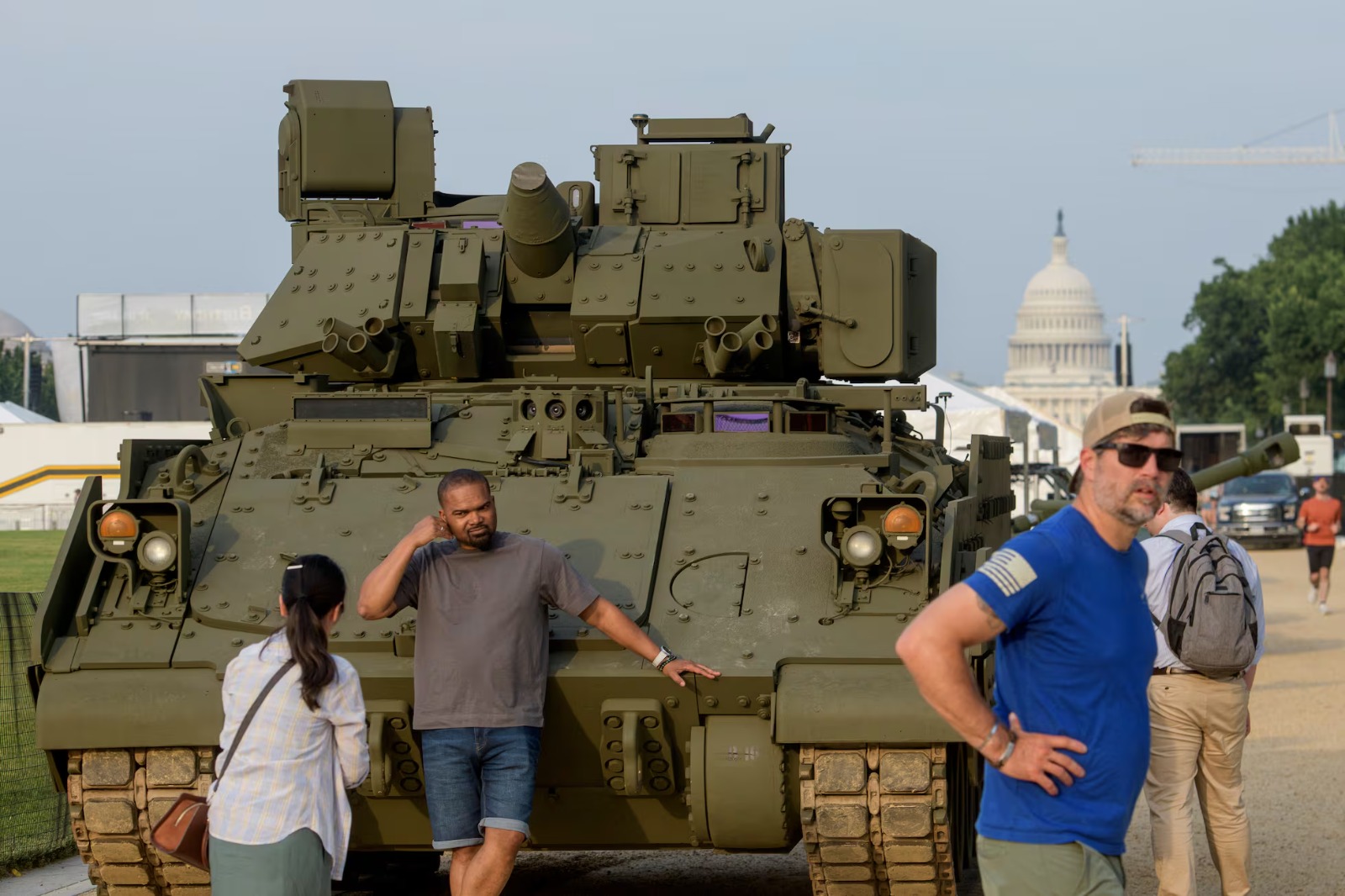Military spectacle and nationwide protests set to collide on Flag Day
The United States is bracing for a day of stark contrasts as a grand military parade celebrating the Army’s 250th anniversary coincides with thousands of protests against the Trump administration. The dual events, both set for June 14, also mark President Donald Trump’s 79th birthday, a detail that further fuels the political and symbolic overtones of the day.
Military parade: A showcase of might
The military parade, touted by Trump as "bigger and better than any other," will unfold in Washington, D.C., with Constitution Avenue serving as the main route. The event, declared a special national security occasion, is expected to draw 200,000 attendees. Beginning with a wreath-laying ceremony at Arlington National Cemetery, the day will also feature a festival at the National Mall and conclude with fireworks over the Tidal Basin.
The Army has announced an impressive lineup for the parade, including 6,700 troops, tanks, armored vehicles, and a flyover by 50 aircraft spanning multiple eras. Historic World War II planes, Abrams tanks, and even the Sherman tank will be on display. Marching bands, military animals, and paratroopers performing a ceremonial flag delivery to the president will add to the spectacle.
The price tag for the event is estimated between $25 million and $45 million, a cost defended by the administration as a tribute to national pride and military history.
"No Kings" protests: A nationwide movement
While the parade unfolds, a wave of protests under the banner "No Kings Day of Defiance" will sweep the nation. Spearheaded by the 50501 Movement, the protests aim to counter what organizers view as creeping authoritarianism under Trump’s leadership. Demonstrators plan to highlight issues ranging from immigration policies and mass deportations to federal budget cuts and U.S. foreign actions in Gaza.

With over 2,000 protests set to occur across the country and internationally, activists intend to reclaim Flag Day as a symbol of democracy and civil liberties. The movement’s mission statement declares, “The flag does not belong to President Trump. It belongs to us. We are not watching history happen. We are creating it.”
Rising tensions and government responses
Despite the movement’s commitment to peaceful demonstrations, tensions are escalating in several states. Florida’s Brevard County Sheriff Wayne Ivey issued a stark warning to protesters, stating, “If you throw a brick, a firebomb, or point a gun at one of our deputies, we will kill you graveyard dead.” Governor Ron DeSantis added fuel to the fire by suggesting drivers could run over protesters if they felt threatened.
Other states are preparing for potential unrest. Texas Governor Greg Abbott and Missouri Governor Mike Kehoe have activated National Guard units, while Defense Secretary Pete Hegseth has indicated a willingness to deploy troops to additional states if needed. In contrast, California Governor Gavin Newsom has opposed the federal deployment of the National Guard, even filing a lawsuit against Trump for recent actions in Los Angeles.
A nation divided
The juxtaposition of the military celebration and widespread protests highlights a deeply polarized nation. For some, the parade symbolizes patriotism and national unity. For others, it underscores a growing discontent with the administration. Whether on Constitution Avenue or the streets of small-town America, June 14 will likely be remembered as a day of stark contrasts, reflecting the divided state of the union.
Lire aussi
Latest News
- 12:35 Russia-Ukraine conflict update day 1207
- 12:05 Solid evidence Iran holds US responsible for Israel’s aggression
- 11:34 China’s tariff exemption on African imports offers Morocco a chance to shrink trade deficit
- 11:04 Morocco nears acquisition of Bombardier Global 6500 electronic warfare jets
- 10:33 Morocco Strengthens Ties with Anglophone Africa in Moroccan Sahara Dispute
- 10:03 Morocco Dominates Spanish Pepper Market With 200 Percent Export Surge
- 09:32 Europe offers Iran urgent nuclear talks to ease regional tensions

